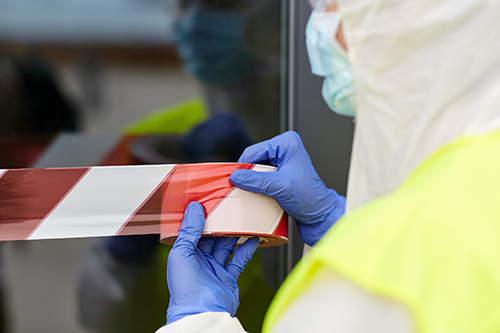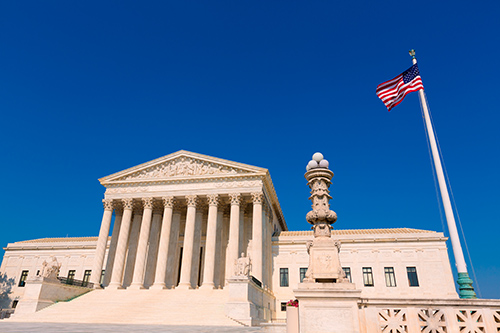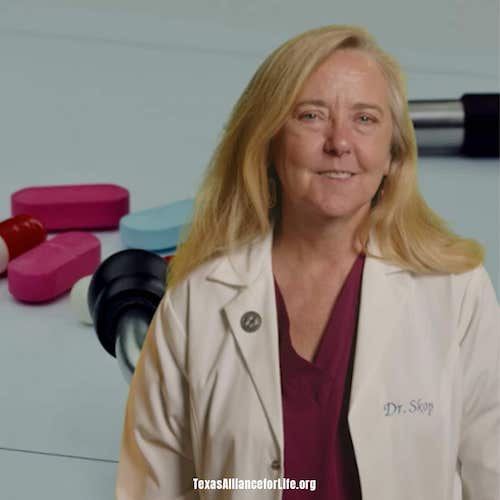As SCOTUS Ruling on DACA Looms, Healthcare Workers Face Potential Deportation
 As the Supreme Court prepares to issue ruling by its self-imposed deadline of July on whether DACA (Deferred Action for Childhood Arrivals) can continue to stand in its current form, the fate of some 700,000 immigrants living in the US stands in limbo. For almost eight years, DACA has allowed undocumented immigrants who arrived in the US before 2012 as children to earn temporary conditional legal status by completing merit based eligibility requirements and keeping a clean criminal record.
As the Supreme Court prepares to issue ruling by its self-imposed deadline of July on whether DACA (Deferred Action for Childhood Arrivals) can continue to stand in its current form, the fate of some 700,000 immigrants living in the US stands in limbo. For almost eight years, DACA has allowed undocumented immigrants who arrived in the US before 2012 as children to earn temporary conditional legal status by completing merit based eligibility requirements and keeping a clean criminal record.
However, in 2017, under the threat of a lawsuit from several state attorneys general over the method in which DACA was created, President Trump rescinded the Obama executive order that created DACA and asked Congress to pass a legislative solution to “legalize” DACA. Not long after that, a federal judge issued a preliminary injunction halting Trump’s rescindment of the DACA executive order which led to the case in the US Supreme Court today.
In the two and a half years since President Trump rescinded the executive order and asked Congress to pass a legislative solution, lawmakers have yet to get the job done. Now, without a legislative replacement, if the Supreme Court issues a ruling that that results in the end of DACA, 700,000 DACA recipients could lose their status to legally live and work in the US and will face the risk of deportation.
Of the hundreds of thousands of DACA recipients who consider America their home, thousands of them are considered “essential workers” by government orders and have been relied on to carry out critical jobs to help fight against the COVID-19 pandemic.
One such example is Javier Quiroz Castro, who was brought to the US by his parents when he was three years old and now works as a nurse at Houston Methodist West Hospital.
“Today, I’m working 12-to 14-hour shifts on the newly-created COVID-19 floor, fighting to stabilize patients and keep them from transferring to the ICU to be intubated — because once that happens, their chance of survival decreases,” Quiroz Castro said in an op-ed recently published in the Houston Chronicle.
Quiroz Castro fears what will happen to his family and his patients if DACA is struck down by the Supreme Court without legislation to replace it.
“The consequences of this will be devastating. I’d have to leave my U.S.-citizen wife and our new baby. My wife is also a nurse, and I’m the only one who takes care of our child when she’s at work. We built our house in Houston and we have a mortgage to pay, which would be difficult on her income alone. My daughter just started walking last week — to think I’d be separated from her for any period of time is awful. I’d also have to leave my patients, many of whom are at the hospital for the first time in their lives, sick with an unknown virus and feeling scared and alone. I’m one of the few nurses on my floor who is fluent in Spanish, which is crucial, since nearly 45 percent of Houston’s population is Hispanic. On a daily basis, I’m called in to translate for other staff members and their patients,” he said.
“Amid the stress and fear, I’ve been lucky enough to witness dozens of recoveries on my floor. We’ve started plasma transfusions, where we inject antibodies from those who’ve recovered into sick patients. One of my greatest joys is seeing a patient walk out of the hospital and knowing that I played a role in their recovery,” he added.
Quiroz Castro also shared some insight as to what it felt like to discover he was undocumented and how gracious he was to receive the opportunities provided by DACA, which in turn allowed him to better serve the country he loves.
“I’m the only one of my siblings without citizenship, and I didn’t realize I was undocumented until high school when I couldn’t get a driver’s license or travel abroad with my church. I was confused, because I felt just as American as anyone else; I don’t even remember Mexico. I decided to become a nurse when I learned about the need for bilingual nurses in the United States, a shortage that has tripled since 2014, according to research by New American Economy. But without DACA, I would have languished on the sidelines. Prior to the program, I was paying thousands of dollars in nursing school tuition, but I couldn’t take the licensing exam or legally work without a Social Security number. Amazingly, right before the exam in 2012, DACA was announced. I cried as I watched the announcement. I could now achieve my dreams and do my part for the country I call home,” he said.
Quiroz Castro also believes that terminating DACA could have negative effects on public health, especially during the COVID-19 pandemic, due to the high number of DACA recipients who work in health care.
“Nearly 62,000 health care workers have DACA. It takes weeks or months to properly train a new employee, so it’d be impossible to replace tens of thousands of health care workers in the middle of a pandemic,” he added.
Quiroz Castro is just one example of many DACA recipients who are productive members of society and have grown to love America and know it as their only home. Without a legislative replacement for DACA, a Supreme Court ruling in the near future could lead to the end of DACA and the legal status it allows its recipients to earn.
As President Trump asked them to in 2017, it’s time for lawmakers to get to work on passing a bipartisan legislative solution to create a conditional method for DACA recipients to earn their legal status.








